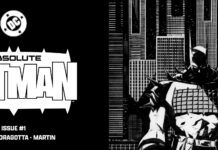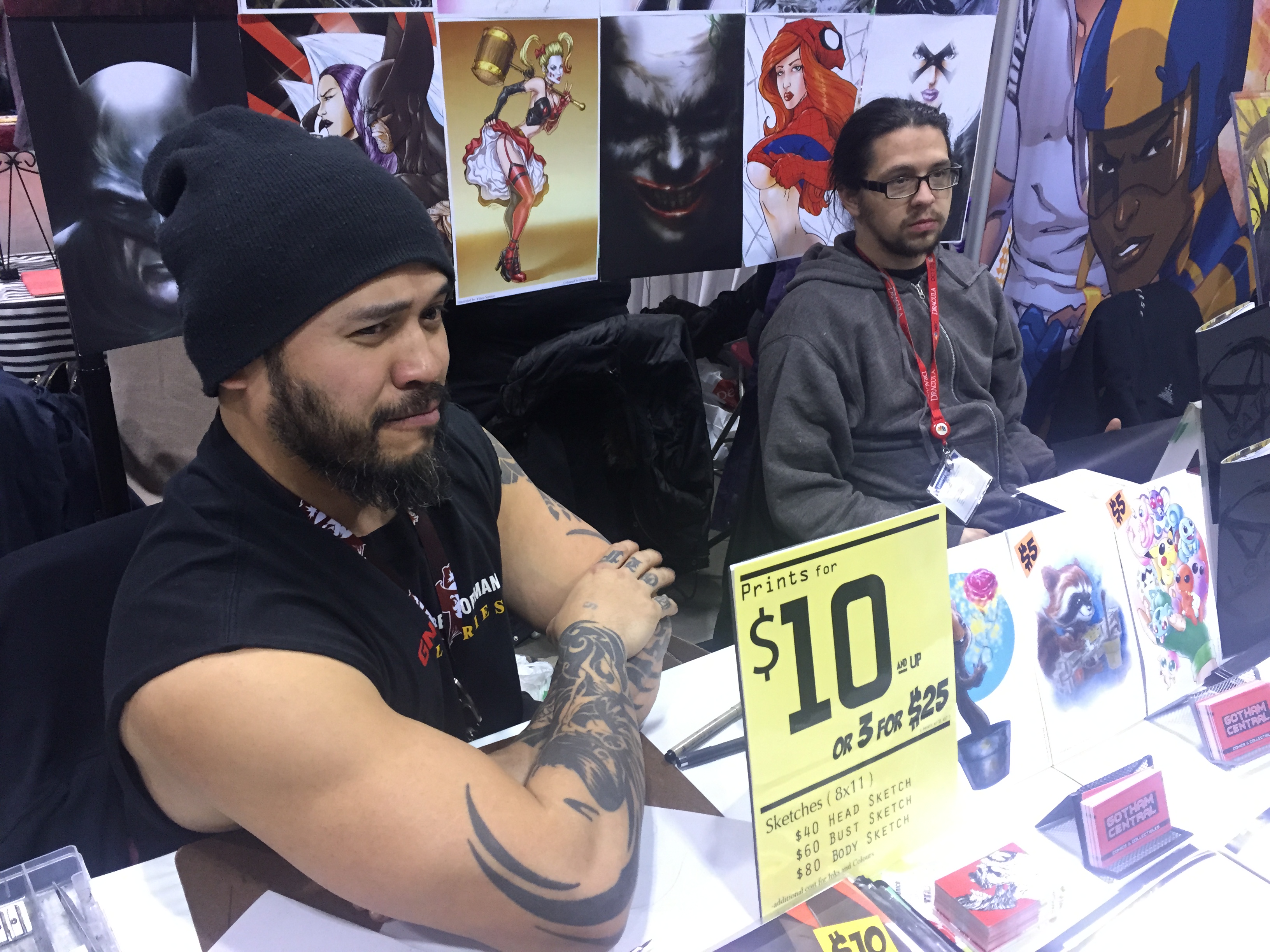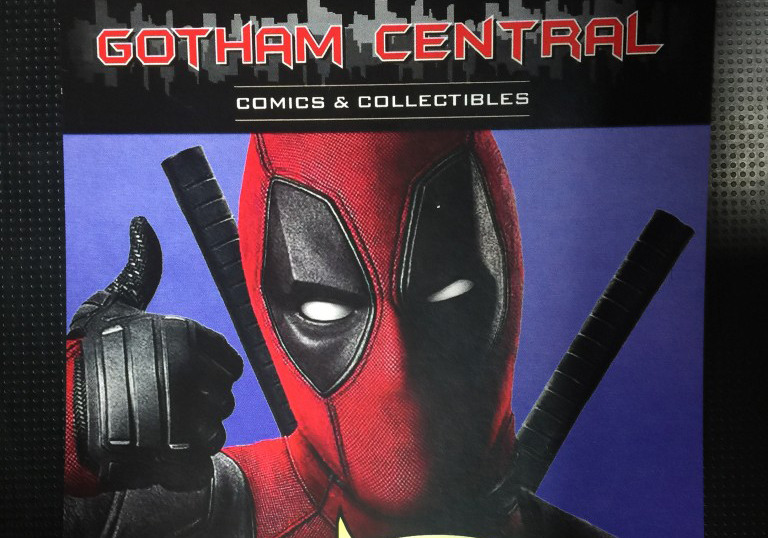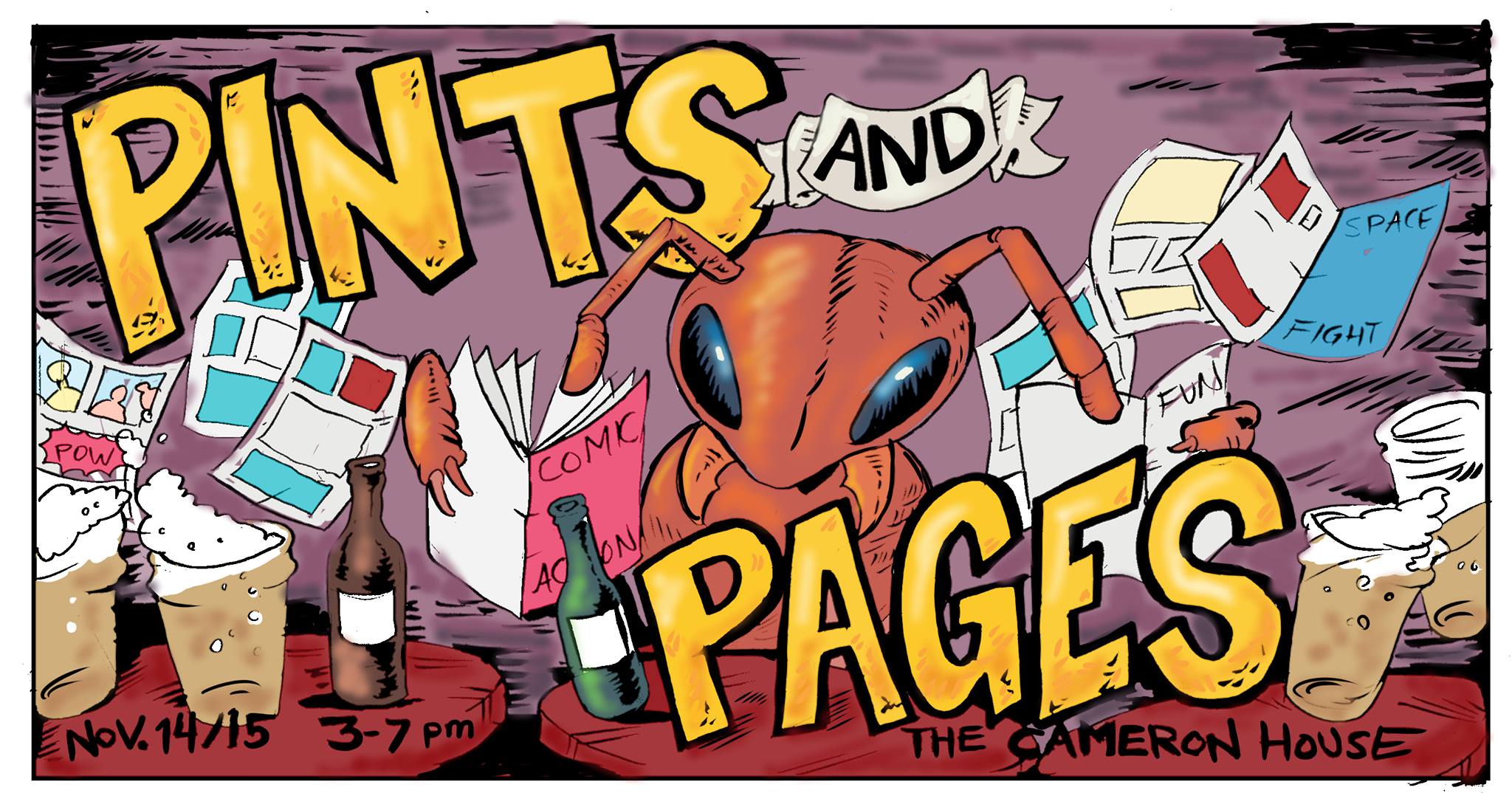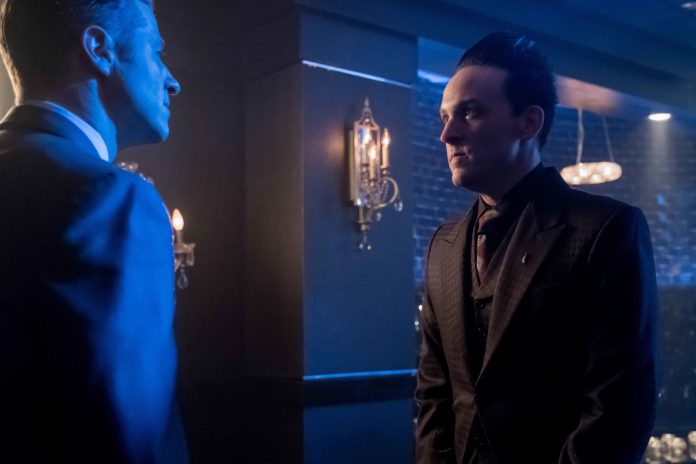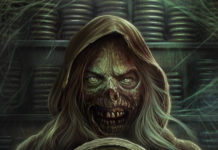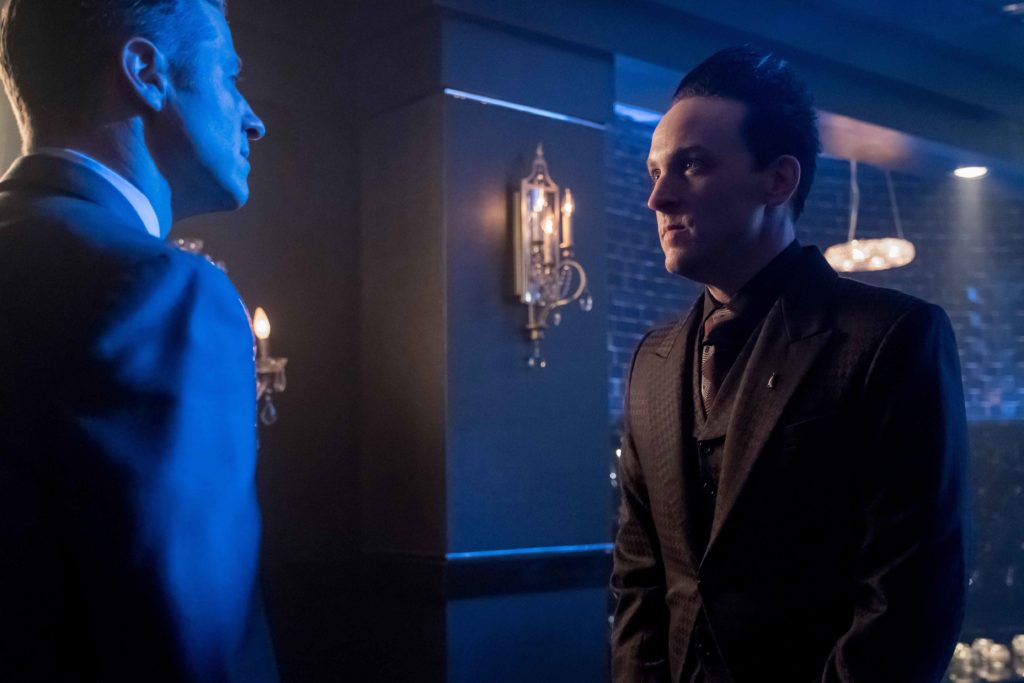 “He’s dead, remember? Not that that matters much in this town anymore.”
“He’s dead, remember? Not that that matters much in this town anymore.”
It seems there are many things that don’t matter much in Gotham City or in Gotham as a television show. As we have seen in previous seasons, characters that show a residue of potential are quickly knocked off the board, almost as if in response to the “no one is safe” attitude of Game of Thrones. You know what else doesn’t seem to matter much – depth of story and themes. As I was beginning to laud the show for digging deeper, my shovel was slapped out of my hands in a block move that would make Dikembe Mutombo proud.
We open Season 4 three months after the events of the Season 3 finale and crime is at an all-time low. Everyone is happy, most notably the politicians, though the credit goes to the Penguin, who has implanted a city-wide crime licensing program. It seems one cannot run amok in Gotham without one lest they run into Victor Zsasz and are straightened out, which is a euphemism for being whacked, which is a euphemism for being killed.
For a percentage of the take, Penguin will allow you to commit a crime in the city. It’s as the new Mayor says “unionizing crime”, but it appears that only applies to robbery and theft – no mention of murder, kidnapping, etc. Are there more comprehensive programs that are to be rolled out? Is murder off the table, save for Penguin and his men?
Perhaps more platitudes should go to Penguin. After all, as both Mayor and now Gangster Number One, he has achieved what the ever-corrupt GCPD couldn’t do – make Gotham safe. Maybe the problem lies with Gordon and his priorities. When he learns of Penguin’s plan, he is more concerned with proving the GCPD (and by extension himself) are still relevant than the ever deepening corruption of the city. I never thought that Gordon’s engine runs on ego – machismo yes, but not ego – and therein lies a problem of character or rather, uncharacteristic of this character.
Penguin’s plan raises many interesting thematic questions in this episode. If violent crime is down, does it matter how the numbers dropped? Do Penguin and his organization have tools in place that Gordon and his GCPD do not? Does the GCPD have tools that Penguin doesn’t or doesn’t care to have?
Make no mistake; Penguin is not serving the public good, rather his own agenda and he profits handsomely from his scheme. But we see how easily the people of Gotham are resigned to go along with it, seemingly as no one gets hurt in the process.
But here’s the rub; there are lots of good questions raised but then left unanswered as the show plays it safe with a plot that involves Gordon baiting a rogue gang (who don’t play by Penguin’s rules) and Penguin to square off at the grand opening of Penguin’s new club, The Iceberg Lounge, whom he took from Babs and Tabs at the end of last season.
Penguin sees Jim’s “ham-fisted manipulations” from a mile away and catches the gang with the intent on making a public example out of them. As do the best-laid plans of mice and men, this one goes awry at the hands of Ivy, who kills the power and gives the gang a chance to release Crane’s toxin on an arrogant Penguin who then hallucinates a Riddler emerging from his Han Solo-esque slumber and scaring the pants off him.
I’m not sure if Ivy did what she did out of spite (seeing as she was constantly moved to the back burner both figuratively by the writers and literally by Penguin and just about everyone else on the show save Selena) or by some residue of a moral compass. I will concede it must be difficult to write a character who is fifteen emotionally, intellectually and mentally with the body of a thirty year old without making things creepy.
The other problem is I am not confident Gotham will explore that character angle; there’s been enough evidence in the past to support my concerns. But let’s cross that bridge when we get to it, shall we? As of this episode, Ivy’s decision has given the GCPD some power and they round up the gang while proving their value to Gotham City. But if the GCPD’s relevance really wants to be proved, the show needs to address the issues Penguin’s licensing brings up, as well as depict it as something other than a corrupt organization that operates with the same logic as the criminal syndicates they are supposed to shut down.
Perhaps what we as the audience are to infer is that playing by the rules is a less effective method in achieving one’s goals. That may be true, but other shows have explored in depth similar themes and have done so very well – see The Shield. Perhaps it’s no coincidence that Michael Chiklis, who starred in The Shield, is now on Gotham. It’s also worth noting that accountability counts for something, and this could have been a long-play thematic debate over the course of the series, especially considering we are now seeing Bruce Wayne in his vigilante-lite first steps toward Batman.
Sadly, this doesn’t seem to be the debate Gotham wants to present, and there will never be any meaningful tension on the show between crime and justice as a result. Gordon will be as irrelevant as he fears he is, and villains like The Scarecrow will be at the epicentre of the chaos, of which there is an abundant supply in Gotham to keep the baddies busy.
Another season underway and another episode of serious Harvey; I really want more sarcastic Harvey, please. Thankfully Robin Lord Taylor is out of the gate in full stride as a reinvigorated Penguin, and I suspect we will see Cory Michael Smith come in from the cold sooner than later (see what I did there?). And we did get some good lines from Victor Zsasz, so I’m happy.



